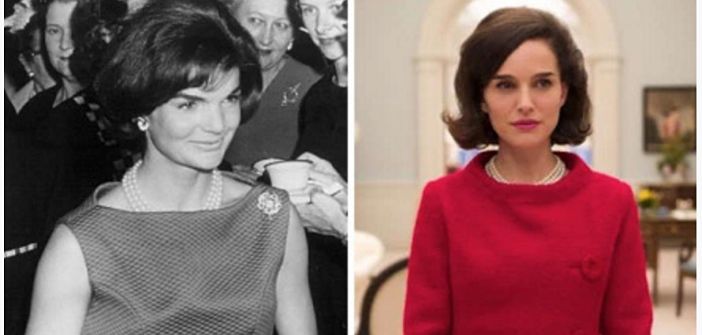For his first American film, Chilean director Pablo Larraín did not confine his narrative by chance to the days following the assassination of John F. Kennedy in Dallas on November 22, 1963.
Jackie Kennedy, the most illustrious widow in the United States, is embedded in our collective imagination. But, as Pablo Larraín says, “no one will ever truly know who Jackie Kennedy was.”
Threaded throughout is the reconstruction of the interview granted during this decisive period to journalist Theodore White (Billy Crudup) from Life magazine, which provides all the keys to the film. And that’s the subject: the invention of a legend more “real,” larger than reality. We shift into the realm of myth, inherent to all.
The demystification is confined to examining the different ways of telling the same events, depending on whether the heroine addresses the press, her confidante, or a philosopher priest (who responds, “we lie down in despair, we regain courage in the morning after a good coffee”).
All the Jackies overlap: the shocked victim, with blood and tears on the famous pink suit. The widow, lost, alone, in the solemn luxury of her private apartments. And above all, the architect of posterity. Not only of the Kennedys but also her own.
Natalie Portman never approaches her character, so familiar, so famous, as an imitator. The actress possesses the strength and talent to embrace this enigma, giving her performance something magnetic, poignant.


